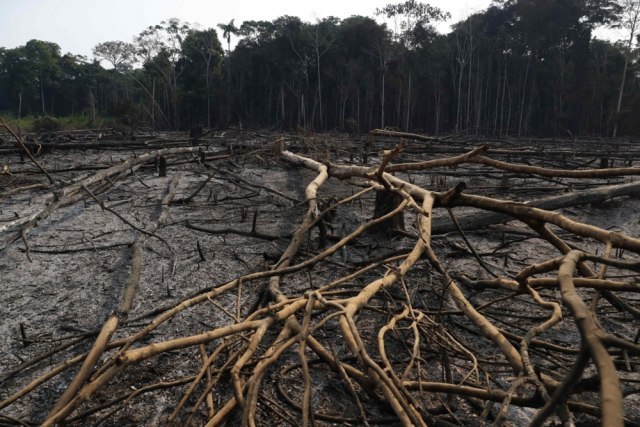Last warning: In 26 years...
The continued destruction of nature around the world by the middle of this century will result in shocking changes in the lives of all people, scientists warn.
Monday, 04.12.2023.
09:07

Last warning: In 26 years...
As the Index.hr reports, there will be major shocks to food and drinking water supplies, the disappearance of unique species and the loss of landscapes that are central to human culture and leisure.If humanity fails to meet its commitments to tackle the five main drivers of nature loss, critical natural systems could collapse by 2050, just as the human population is predicted to peak.
In an extensive text, the British Guardian states that it has discussed the matter with leading scientists, indigenous leaders and environmentalists around the world.
In summary, the warnings state that millions of plant and animal species are threatened with extinction, forest fires, floods and extreme weather conditions.
Also, unless something changes, by 2050 there could be a rapid spread of invasive species (which often bring new diseases), massive plastic pollution, declining fish populations and disappearing forests.
More than a quarter of all plant and animal species, which experts have assessed in depth in terms of conservation, are at risk of extinction.

It is recalled that at the Cop15 summit on biodiversity last December, the governments participating in that meeting agreed on 23 goals, including the restoration of 30% of the degraded terrestrial, aquatic, coastal and marine ecosystems of the planet, but, so far, the governments have not fulfilled any of the self-imposed goals related to loss of nature, and experts say that this must change urgently.
Over the past 10,000 years, humans are said to have cleared about a third of all forests to make way for farmland, researchers estimate, destroying key ecosystems like tropical rainforests, which are among the most diverse on the planet.
Also, experts warn that unique arid regions are at risk. "If we don't take the necessary actions to preserve biodiversity, the future of the world and our people can be described in one word - desert," said Christian Juliao of the Brazilian Amazon's Pankararu indigenous population.
In October, a UN expert assessment warned that invasive species have become a multibillion-dollar problem that is expected to worsen unless action is taken. At least 3,500 harmful invasive species have been recorded globally and these species are playing an increasing role in natural disasters such as the deadly wildfires in Hawaii in August.

Those in Europe, on the other hand, warn that due to the warming of the climate and the spread of invasive species of disease-carrying animals, new ecosystems could be found in Europe, and an obvious example is the invasion of disease-carrying tiger mosquitoes.
At the same time, it is estimated that two-thirds of the projected population of 10 billion people will live in cities by 2050. This will increase the energy requirements to manage the growing complexity of urban metabolism.
Cities will also increase demand for the exploitation of natural resources, with dire risks to ecosystem health, and an increasing proportion of the population will become disconnected from nature, physically and psychologically.
It is also expected that numerous species of fish that used to be eaten by humans will disappear due to overfishing, and if you add to that the warming of the water, it means that fishing will die out as such.
Also, the accumulation of plastics, chemicals, pesticides and fertilizers in natural ecosystems stands out as a threat to biodiversity that requires urgent action, experts say.



















































Komentari 1
Pogledaj komentare